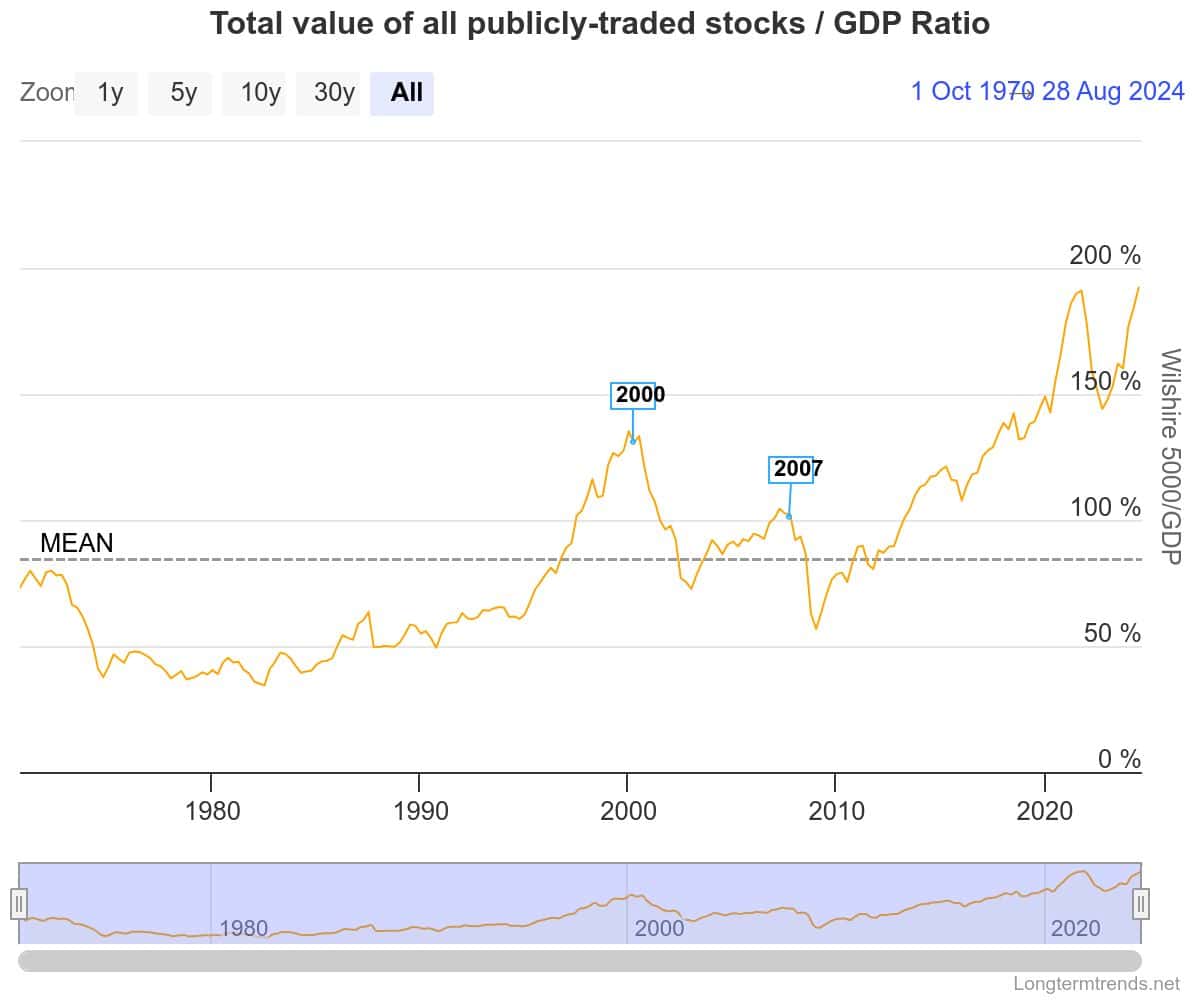Warren Buffett's accumulated cash. Should I be worried?

Image source: The Motley Fool
Warren Buffett, as chairman and CEO of Berkshire Hathawayoversees a cash balance of $272bn. As the chart below shows, the company's cash, cash equivalents, and US Treasury bills – a proxy for money – have been rising steadily since the end of 2022.

Not that it seems to affect its market margin. This week (28 August), it became the first non-tech business to record a stock market value of $1trn.
From 1965 to 2023, its stock price increased by 19.8%. This compares to an average annual return of 10.2% from S&P 500 (for reinvested shares).
And although some of this can be attributed to Berkshire's investment an applemuch of it has come from companies outside the tech sector, such as American Express again The Coca-Cola Company.
However, when perhaps the world's most famous investor starts putting cash in place of stocks, I think it's time to consider what he's saying.
What could this mean?
Most of the cash generated in the second quarter of 2024 came from the sale of part of Berkshire's stock in Apple.
When asked at the annual shareholder meeting about the divestment, Buffett said it was for tax reasons. The billionaire expects interest rates to rise as the US tries to control its budget deficit.
Maybe this means you have nothing to worry about?
I'm not so sure.
Buffett once told investors to be afraid of greed. And many believe that US stock prices are currently overvalued.
Any sign of a crash is likely to affect everyone's portfolio, including mine, which is FTSE 100 shares. As the saying goes, when America sneezes the rest of the world catches the flu.
Similar to the market's price-to-earnings ratio, the chart below compares the combined value of the country's 5,000 largest listed companies and their gross domestic product.

And when I look back in 54 years, the rating has never been higher. Similar peaks in 2000 and 2007 were followed by significant market corrections.
My own opinion
But despite this, I will not change my strategy.
I will continue to invest for a long time. I know there will be bad times ahead. But I cannot predict when these will happen.
Instead, I will continue to invest in quality companies that have the best chance of consistently growing their earnings.
That's why I recently bought some Barclays (LSE:BARC) shares.
I am impressed by the CEO of this bank who realizes that its performance is lagging behind its peers. For example, its official return on tangible equity for the six months to 30 June 2024, was 11.1%. This is less than that of Lloyds Banking Group (13.5%) and NatWest Group (16.4%).
CS Venkatakrishnan has started building a simple business model by emphasizing its niche markets.
Analysts forecast earnings per share (EPS) of 30.5p (2024), 39.6p (2025), and 48.4p (2026). If these estimates prove to be accurate, by 2026, the bank will have increased its EPS by 75%, compared to 2023. These figures imply a forward (2026) price-to-earnings ratio of just 4.7.
However, bank stocks can be volatile. Bad loans remain risky and margins will tighten as interest rates (as expected) begin to fall.
Despite this, due to its long-term potential, I think Barclays will be a good addition to my portfolio.
Source link



